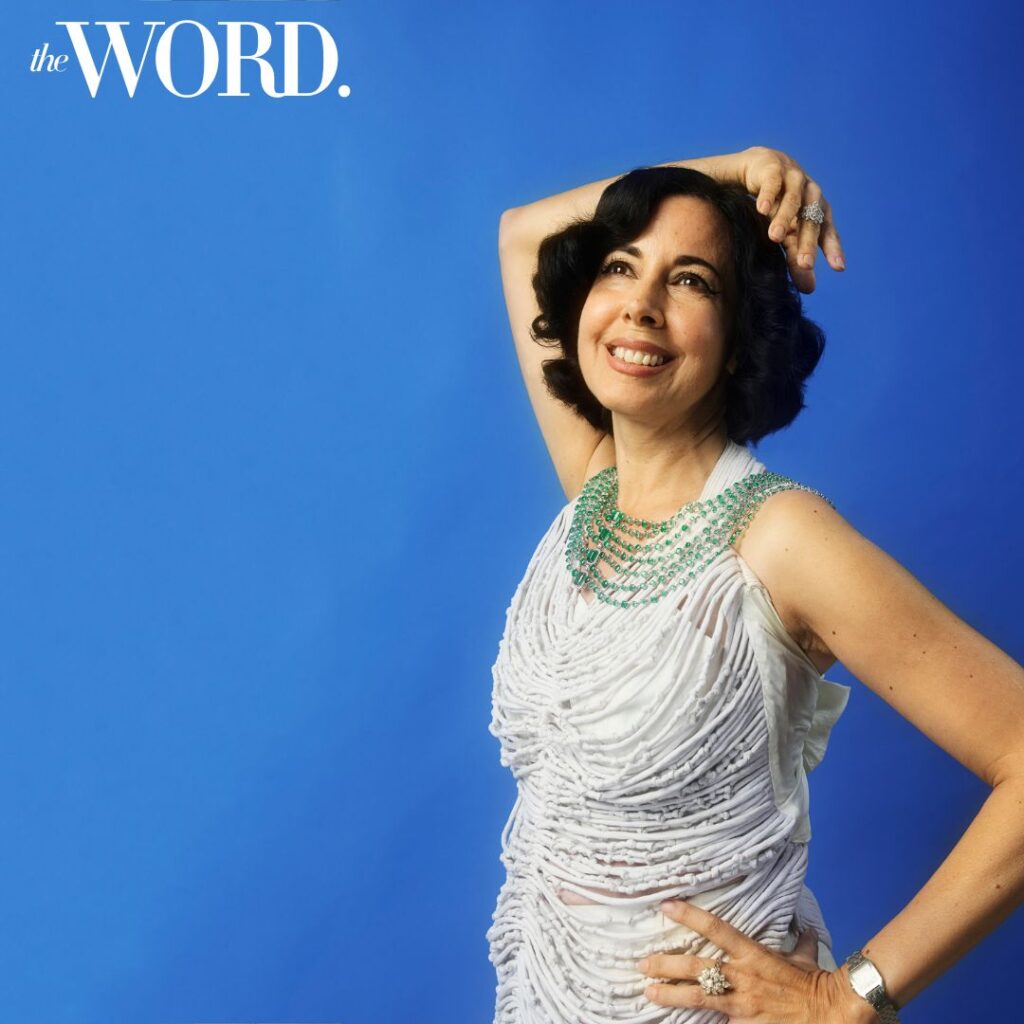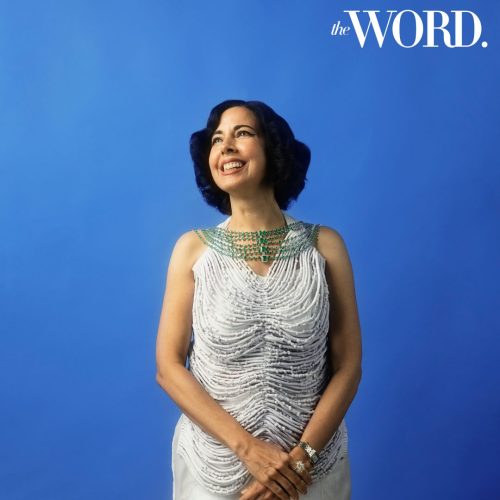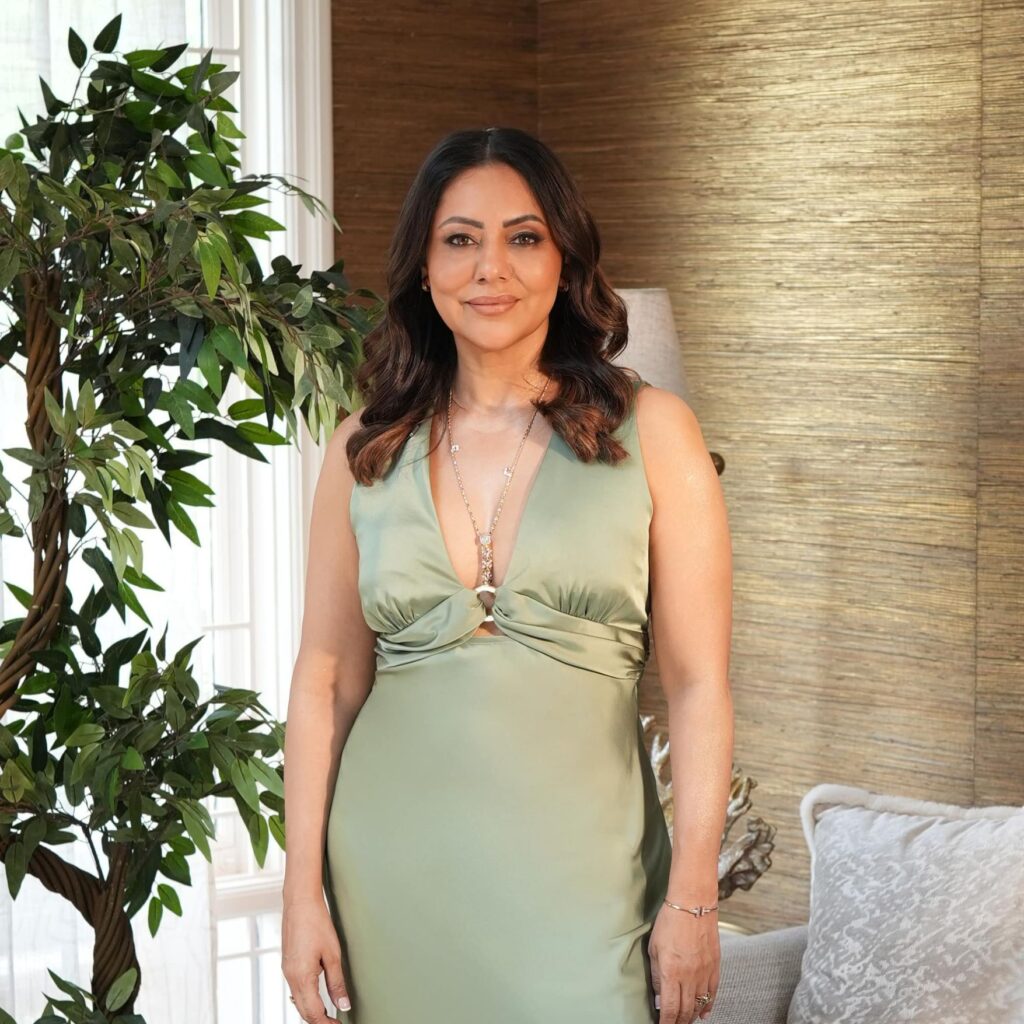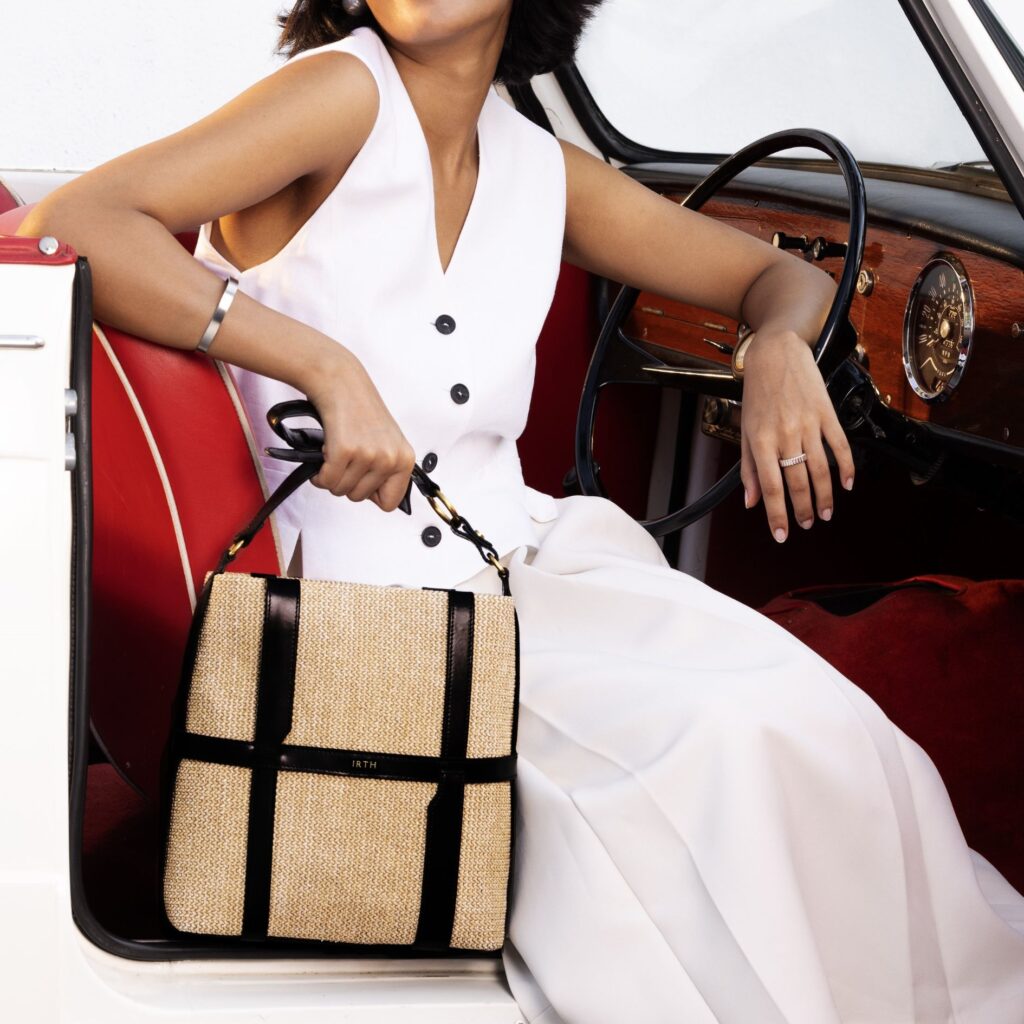The Word. Magazine presents a powerful photo-essay on ageing and its joys, in The Ageless Series.
- Fashion
The Ageless Series: Ira Mukhoty, Age 54, is Questioning Patriarchal Toxicity
- ByTeam The Word.

Author Lisa Ray, age 54, for The Word. Magazine’s ‘The Ageless Series’
The Word.: How old are you and how old do you feel?
Ira Mukhoty: “I’m 54 years old, and in my mind, I think I’m around 30 or 35. Every 10 years, I add a couple of years, in my mind, to how old I feel and how old I think I look.”
TW: What is the best thing about growing older?
IM: “There are lots of wonderful things about growing older. The truth is, especially for women, we feel a lot better in ourselves and our bodies, the older we get. I have far fewer needs to look a certain way now, and I look the way I want to. I also feel a lot more comfortable in who I am, so I would definitely say that the older I have gotten, the more comfortable I feel about how I look.”
TW: How has your understanding of beauty changed over the years?
IM: “When I was very young, I used to feel a lot of pressure to conform to the way society expected me to feel. When I was in my 20s, I was too thin and I wanted to be more buxom and more rounded. And then when I was in my 30s, I finally got down to a size zero or size two, which was suddenly fashionable. I think it was only after I turned 40 that I realised this is a loser’s game, and that I just have to feel comfortable in who I am. I now know what suits me, what I look good in, what I feel comfortable in.
Now, beauty has a great deal to do with me rather than the other person’s gaze.”
TW: What are some of the most toxic things you have heard about women?
IM: “Some of the really stupid things that people say about women have to do with reproduction. Women are often told that after 25, they need to start thinking about their biological clock. I think that’s just perfectly ridiculous…in our day and age, we can do all sorts of things to conceive children later in life.
I have noticed this idea of ‘settling down’ across the world. In different societies, women are always told that once they reach 30, it’s over for them in terms of their reproductive age. That, I believe, can be quite toxic for young women.”
TW: What do you love most about your life?
IM: “What I love most about my life right now is my work, because I have the freedom to pursue it—my children are grown and I don’t have too many responsibilities. I think a lot of women face this…we spend a lot of our early years nurturing other people. And so, our own needs, careers, and desires take second place. At this stage, I can really focus on my career and my writing, and there’s a great freedom in that.”
TW: What are you most proud of?
IM: “I am very proud of my girls, they’re wonderful. But I am also very proud of my work. I have written four books and I’ve finished my fifth. And I think that is just a fantastic achievement, because I’ve worked really hard and history is a man’s field, really. So that is something I’m quite proud of.”

TW: What does timeless mean to you?
IM: “I write about historical characters, so I’m often thinking about the past. In the end, all physical things are time-bound, because we change our notions of what we consider beautiful. The notions of beauty have evolved over thousands of years in India, so even our sculptures and paintings keep changing.
In that context, what I consider really timeless is the essence of thought. Spirituality, love, and the divine are what are really timeless.”
TW: What would we find in your jewellery box?
IM: “I have a lot of pieces that I have inherited from my mother and my grandmother. I don’t tend to buy much jewellery, so I love the pieces that have been given to me. My mother was French, so I have all of her French jewellery, which is very different from the things I got from my mother-in-law, which are typically Indian. I truly enjoy the dichotomy between the two styles.”
TW: How do the media and society perceive women over 50?
IM: “I think, till quite recently, society expected women over 50 to behave and look in a certain manner. Almost like the old system of the four stages of life. But, hopefully, that is changing now, and we have more freedom to be and look the way we want to.”
TW: Do you think the world is only celebrating youth, and that more needs to be done to celebrate older women?
IM: “I don’t think the world does enough to truly celebrate women of all ages. There is such a huge focus on the way we look, and that’s very unfortunate because, in fact, the older we get, the more we have to give to society. Greater emotional abilities, intelligence, and wisdom come to us with age, but the world is still so focused on the way we look and how we need to look younger. That really should not be the way it is at all.”
TW: Would you say you love yourself more than you did a few decades ago?
IM: “Yes, I definitely think so. I think women have a hard time saying we love ourselves, but I do accept myself a lot more now because I feel I have contributed in many, many ways. I’ve raised children, I’ve written books, I feel I’ve contributed to society. So I think more than physically loving myself, I think I have led a pretty fruitful life.”

a given age/time framework to be very toxic.
TW: What, according to you, is dressing up according to one’s age?
IM: “Dressing one’s age is a tricky one. I think it’s more a mental game, of what we impose on ourselves. But it is also about what we feel is appropriate to ourselves. I think dressing up should be flexible, and should adapt to different situations and different people.”
TW: How would you define your personal style?
IM: “My personal style, in day-to-day life, is extremely comfortable because I’m often in libraries and looking at archives, so I need to be comfortable. I often feel I don’t dress my age…I dress almost like my young daughters do, which is just jeans, a T-shirt, and sneakers. It’s just so comfortable.
But when I go out, I do like to wear traditional Indian clothes, like a sari.”
TW: Do you think ageism affects women more?
IM: “Yes, I certainly feel that. I write about history, and historically, women only up to the age of 25 were considered sexually attractive, after which their lives were considered to be pretty much over. Now that has certainly changed over time, but it’s still not as much as it could be. As long as a woman looks young and attractive to male eyes, things are considered all right. However, that doesn’t apply to men at all. You have silver foxes being celebrated everywhere, but that’s not the same for women. I’d say there is definitely a double standard where women are concerned.”
TW: What makes you laugh?
IM: “Humour is very important to me. I have to say, people who make me laugh have always won me over. It’s unexpected in a situation, or something that is out of context, that makes me laugh.”
TW: What brings you joy?
IM: “That’s a tough one… Beautiful things bring me joy—my garden, the birds, a beautiful blue sky if that ever happens in Delhi. Just simple things. We look for beauty in complex places, and often it’s very close by.”
TW: If you could go back in time, what would you tell your younger self?
IM: “I’d tell my younger self to just not give a damn about anything, to care far less. I think young women are meant to care a great deal about what people say, what society says, and the expectations from everybody. So I would just tell myself to follow my heart.”
Instagram will load in the frontend.
READ MORE
- Hyderabad Welcomes a Luxurious, New Residential Community With Signature Estates
- The Word. and Bumble Celebrated An Evening Of Scent, Sparks, and Mutual Connections
- How The Bicester Collection Quietly Became the Fashion Insider’s Best-Kept Shopping Secret
- Gauri Khan, On Her New Experience Centre In Delhi, Her Favourite Spot At Home, and Great Décor Advice
- With IRTH’s New Store in Noida, The Brands Adds To Its Joyful Delights





